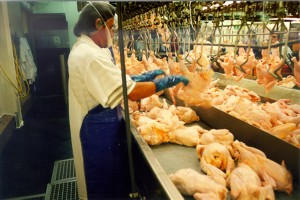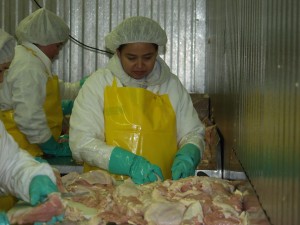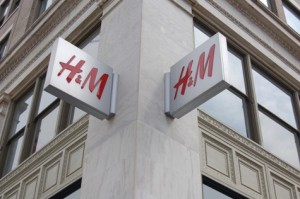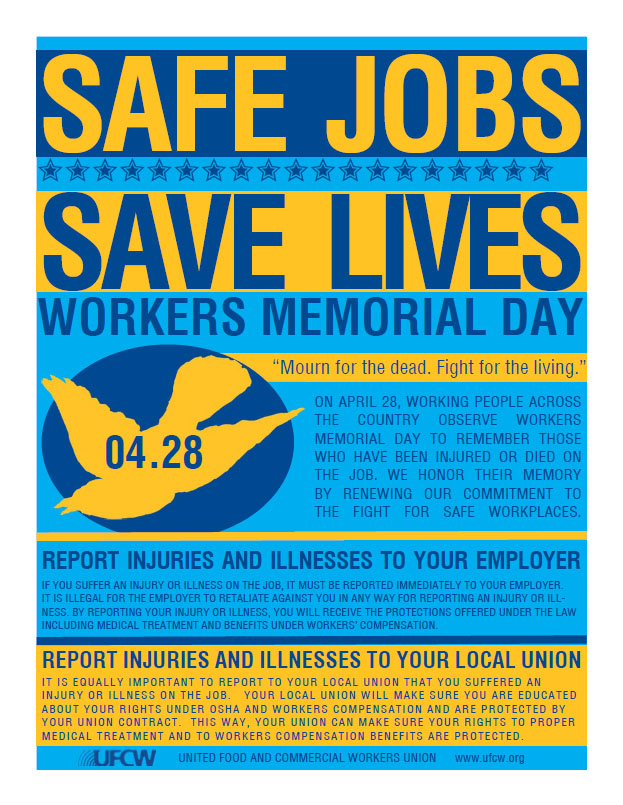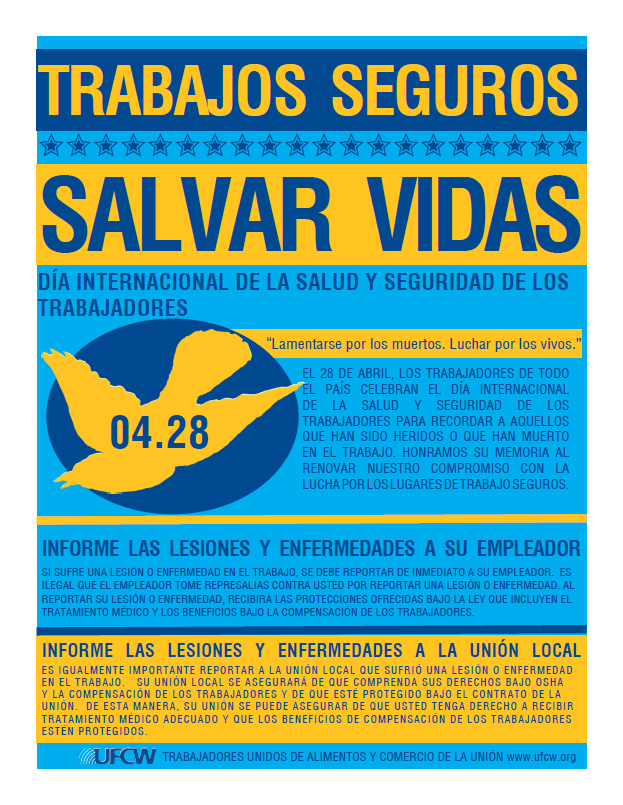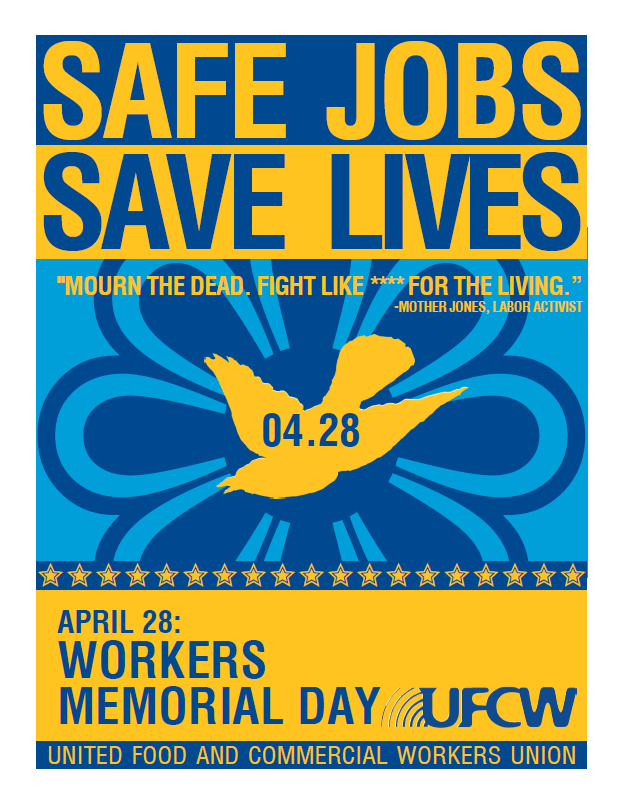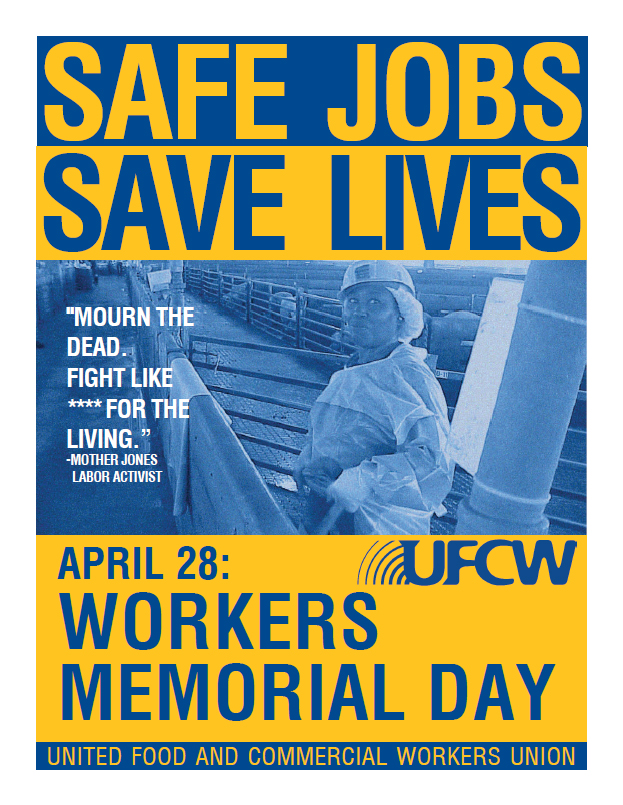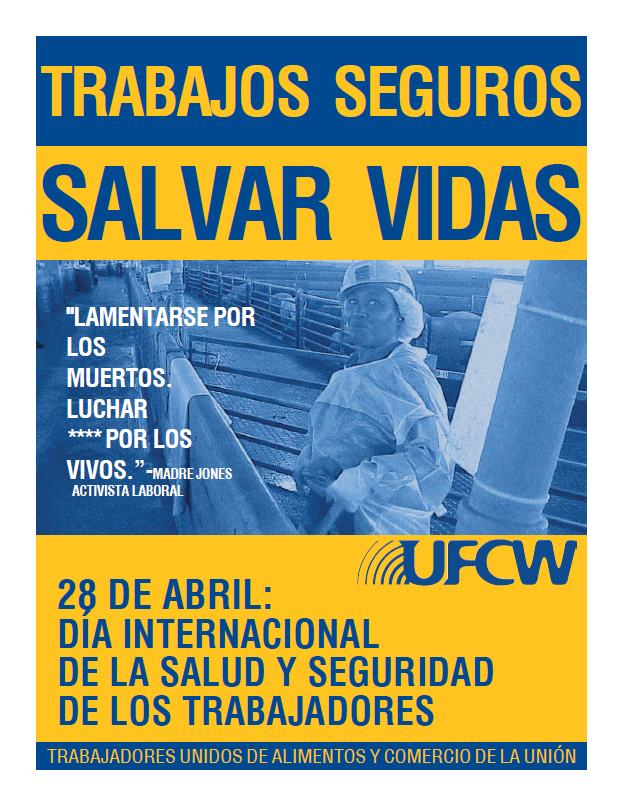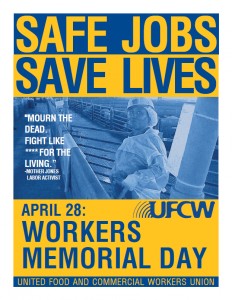 Today on April 28—Workers’ Memorial Day—the UFCW will join workers in the U.S. and around the world to honor the thousands of workers who have been killed on the job and the millions of workers who have suffered from injuries, sickness or diseases in their places of work.
Today on April 28—Workers’ Memorial Day—the UFCW will join workers in the U.S. and around the world to honor the thousands of workers who have been killed on the job and the millions of workers who have suffered from injuries, sickness or diseases in their places of work.
While decades of struggle by workers and their unions have resulted in significant improvements in working conditions, too many workers here in the U.S. and around the world are suffering or dying on the job. Last April, our sisters and brothers who worked at the Rana Plaza garment factory in Bangladesh were told to report to work in a building that had severe structural cracks and over 1,100 workers lost their lives when the building collapsed. A year later, thousands of workers in Bangladesh continue to work in dangerous conditions and for meager wages, and survivors of the Rana Plaza tragedy are still suffering from their injuries and loss of income. Here in the U.S., according to the Bureau of Labor Statistics, over 4,000 workers lost their lives on the job in 2012 alone.
Workers everywhere deserve a safe place to work, and those corporations that exploit workers for profit and put them in danger must be held accountable. As we observe Workers’ Memorial Day, the UFCW takes to heart the words of activist Mother Jones to “pray for the dead and fight like hell for the living” by reaffirming our dedication to supporting workers here in the U.S. and around the world who are fighting to uphold their basic rights – including safe jobs, workplace fairness and collective bargaining.

